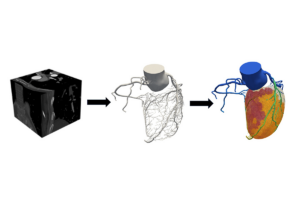AUSTIN, Texas — The Moody College of Communication has teamed up with the Health Alliance for Austin Musicians (HAAM) and Estes Audiology Hearing Centers to provide free hearing screenings and earplugs to local musicians. The next clinic will be held Tuesday, April 28 in the UT Speech and Hearing Clinic from 9 a.m. to 2 p.m.
At the clinics, which take place four times a year, musicians who are members of HAAM can receive screenings that include testing, counseling and fittings for customized filtered ear plugs.
“The Department of Communication Sciences and Disorders at UT Austin is extremely honored to be a partner with HAAM and Estes Audiology in providing hearing health services to local musicians,” said James Booth, chair of the department. “Many local musicians are struggling to make ends meet, so their health sometimes takes a back seat. The regular events in our Speech and Hearing Center provide critical hearing screenings and custom ear-plugs to hundreds of musicians. The musicians of Austin are woven deeply into our fabric, and help to make us who we are as a community, so we are pleased to provide the support.”
Normally customized earplugs cost more than $200, but musicians attending the clinic pay a $25 co-pay for both the earplugs and screening. Donors who support HAAM’s program services make the earplugs possible. The screenings are free and done by clinic staff members and graduate students in the Department of Communication Sciences and Disorders.
“If our musicians can’t hear, they can’t play,” said Reenie Collins, executive director of HAAM. “There is so much coordination that goes back and forth between band members in addition to the range, pitch and tone of the music they play.”
Both the screenings and fittings consist of a four-step process: cleaning the ears, screening musicians in specialized sound-treated booths, explaining test results to patients, and creating molds of the ear canal with silicone. The silicone impressions are sent off to Westone Laboratories in Colorado Springs, Colorado. The custom-fit, personalized earplugs arrive from Colorado to the HAAM offices about four weeks later and then are given to the patients.
The demand for these clinics has been so high that organizers have had to create a wait list because the funding and resources can’t accommodate all those who wish to participate.



